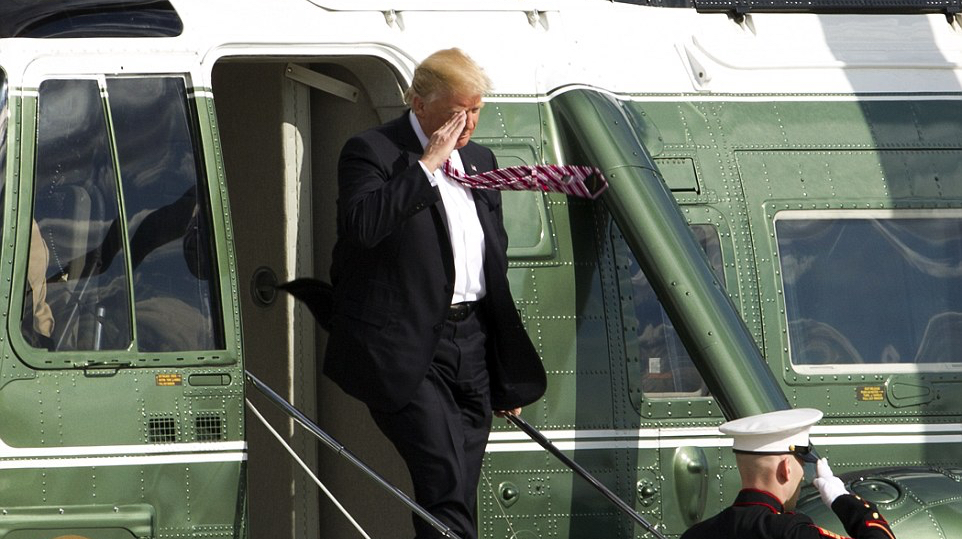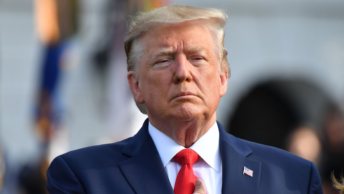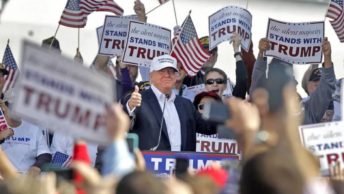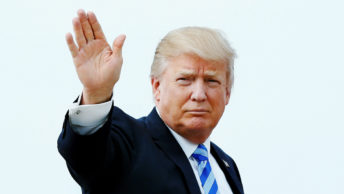Some of the people who opposed President Trump may never give him a chance. But I believe many others are prevented from doing so only because they misunderstand his intellectual style. This is ironic because that style draws upon two things prominent in our western cultural tradition—hyperbole and a common sense approach to everyday challenges.
Hyperbole is exaggeration used to capture an audience’s attention and emphasize an idea. Both the Old and New Testaments are filled with this speech device. For example:
I beat [my enemies] fine as dust before the wind. (Ps. 18:42)
A thousand may fall at your side, ten thousand at your right hand, but it will not come near you. (Ps. 91:7)
It is easier for a camel to go through the eye of a needle than for a rich person to enter the kingdom of God. (Matt. 19:24)
How can you say to your brother, ‘Brother, let me take out the speck that is in your eye,’ when you yourself do not see the log that is in your own eye? (Luke 6:42).
If your right eye causes you to sin, tear it out and throw it away. (Matt. 5:29)
If anyone comes to Me, and does not hate his own father and mother and wife and children and brothers and sisters, yes, and even his own life, he cannot be My disciple. (Luke 14:26)
And these signs will accompany those who believe: In my name they will . . . pick up snakes with their hands; and when they drink deadly poison, it will not hurt them at all. . . .” (Mark 16:17-18)
A close reading of these passages reveals that they are hyperbolic and therefore cannot be taken literally. Yet this fact neither diminishes their power nor obscures their meaning. In fact, the hyperbole makes their message more effective. (To say this is not to deny that over the centuries the statements have challenged theologians to discern their precise meaning.)
What many Americans fail to recognize is that many of President Trump’s statements use the same device of hyperbole so prominent in the Bible, and the result is similar—many of those who hear him are outraged and conclude that he is unstable. Here are just a few of Trump’s statements that have evoked this response:
I will make our government honest again, believe me. But first, I’m going to have to drain the swamp.
If I become president, we’re all going to be saying ‘Merry Christmas’ again, that I can tell you.
We’re going to build a wall and have Mexico pay for it.
[We will] eliminate the department of education and the EPA.
We will bar Syrian refuges and deport those already here, [and] have the Persian Gulf nations set up a safe zone in Syria.
[We will] target and kill the relatives of terrorists.
[We will] renegotiate the Iran deal.
[I would] drop that dirty rotten traitor Bowe Bergdhal out of an airplane over desolate Afghanistan without a parachute.
In The Art of the Deal, Trump made clear that he purposely employs hyperbole. “A little hyperbole never hurts,” he explains.” I call it truthful hyperbole. It’s an innocent form of exaggeration—and a very effective form of promotion.” (I would add this qualification. It “never hurts” as long as the exaggeration does not obscure or undermine the insight, as sometimes happens with Trump’s hyperbole. I hope in the future his hyperbole is as bold and daring as ever, but stops short of being outrageous.)
He has found hyperbole particularly effective with the press. “Most reporters, I find, have very little interest in exploring the substance of a detailed proposal for a development. They look instead for the sensational angle. . . . If you are a little different, or a little outrageous, or if you do things that are bold or controversial, the press is going to write about you . . . [and] the result is that the press is always going to write about me.”
The second thing many people misunderstand about Trump is his common sense approach to meeting everyday challenges. A notable example is his use of two time-honored strategies of buying and selling—offering less than you are willing to pay, and asking more than you are willing to get. This strategy can be found from the bazaars of the mid-east to the tourist shops at American beaches.
Like virtually every other American, you have either used these approaches yourself or envied a relative or friend who uses them successfully (or both).
If, for example, you are buying a car, you naturally want to pay as little for it as possible. Therefore, if the sticker price says “$30,000, you may offer $27,000 or even less. If you have difficulty determining the lowest offer that has a chance of being accepted, you may consult a pricing service to help you do so. There’s nothing immoral about such actions. They are simply the most sensible way to buy things.
On the other hand, if you are selling something, let’s say your house, you will set your price higher than you really expect to receive, knowing that prospective buyers will want to pay as little as they can. (And knowing, as well, that you can always lower your first price, but you cannot raise it.)
Like the rest of us, Trump uses the same time-honored buying and selling strategies, only more effectively than most of us do. He gave an example in The Art of the Deal. The property in question was the estate he wanted, Mar-a-Lago. When he first saw it for sale, the owner wanted $25 million. Trump offered $15 million and, as he expected, the offer was immediately rejected. A few years went by and other buyers offered more than he and some even got contracts, but all those deals fell through. Each time that happened, Trump says, he put in another offer, not for the same amount as his first offer, but for less! He finally succeeded in getting the property for a cash offer of $5 million plus $3 million for all the furnishings.
Soon after he bought Mar-a-Lago, several smaller places in the area sold for as much as $18 million each. Morever, Trump explains, “I’ve been told that the furnishings in Mar-a-Lago alone are worth more than I paid for the house. It just goes to show that it pays to move quickly and decisively when the time is right.”
President Trump differs from most previous presidents in other ways, as well. He is less theoretical and more pragmatic. He is also impatient with extended deliberation and, therefore, focuses on efficient analysis and decisive action. These differences have worried many Americans; yet his actions in the short time he has been in office suggest that they are an asset rather than a liability.
Will his penchant for hyperbole and his common sense approach to challenges also be assets? I believe there is an excellent chance that they will. Exaggerating his intentions and expectations has already been effective in getting corporate leaders’ attention and making them more willing to compromise. There is no reason to doubt that it will work as well with members of the Senate and House and the leaders of other nations. Moreover, his persuasiveness in buying and selling things is likely to transfer easily to the realm of ideas.
In short, President Trump has the potential to achieve greatness in office. All Americans should not only hope for this, but should also give him the support and encouragement necessary to realize that potential.
Copyright © 2017 by Vincent Ryan Ruggiero. All rights reserved








